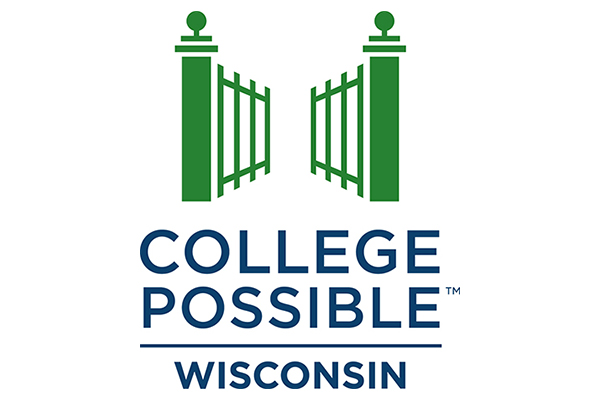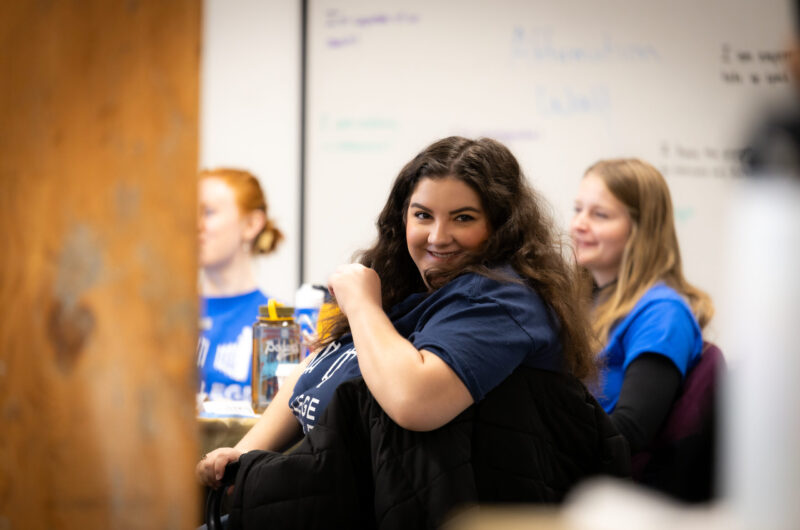 The transition from college to career can be both exciting and overwhelming. While today’s job market offers a wealth of options – including the allure of generous salaries and perks – knowing which option will best kickstart your career can be tough.
The transition from college to career can be both exciting and overwhelming. While today’s job market offers a wealth of options – including the allure of generous salaries and perks – knowing which option will best kickstart your career can be tough.
“If I had to pick a dream job, working as a College Possible (AmeriCorps) coach was it,” said Cassandra, a College Possible AmeriCorps alumni. “I loved having benchmarks to meet, an organizational culture and structure that fit my personal values and a team that was truly committed to student success.”
When compared to most entry-level roles available to college grads, a service year with College Possible can arm you with more sought-after, career advancing skills and experience, which can translate into higher earning potential, faster. Here are three compelling benefits you’ll experience with College Possible AmeriCorps service.
Gain sought-after career skills and work experience
“Training and skill development starts day one and continues through the entire service year,” said DiLiesha Bryant, director of AmeriCorps recruitment and engagement with College Possible. Welcome Weeks, which begins the first day of service, engages all new coaches in three weeks of live, interactive training to set them up for success as a college access and success coach.
From there, coaches are introduced to their cohort of students that they’ll continue to work with Monday-Thursday through the duration of their service term. Fridays are reserved for professional development – a weekly time to receive hands-on training, engage with a national community of practice, and engage in one-on-one sessions with a program leader, all to support your continued growth and development. Training topics build skills essential to your role, while arming you with practical, resume-building skills you can transfer into most career paths.
Hiring managers and recruiters seek out AmeriCorps service members because they recognize that service equips you with transferable experience, a passion for service, and critical skills like intercultural communication, Salesforce data management, team leadership and managing difficult conversations.
“Serving as a coach provided me a wealth of knowledge in the field of higher education before I even attended graduate school, which gave me a leg up not only in the selection process for the Master of Science in College Counseling & Student Development, but also during in-class sessions and field experiences,” said Cassandra.
Build your professional network
A professional network is one of the most valuable tools for accelerating your career, as often the next job you’ll find will come from someone you know. When you serve as a College Possible coach, you’ll be connected to one of the largest volunteer networks in the nation, as well as professional connections to industries that are historically tough to break into.
The AmeriCorps alumni network itself is over 1.2 million members strong of like minded individuals who are devoted to service in education, economic opportunity, disaster services, environmental stewardship and other philanthropic endeavors. At College Possible, you’ll participate in a community of practice with 200-300 fellow AmeriCorps coaches each year as well as program staff with a broad depth of professional experience, all working together toward a common goal: educational equity.
Equally important, you’ll build connections across our nearly 80 partner colleges and more than 140 partner high schools – giving you substantial contacts for future job opportunities in the K-12 or higher education sectors. Post service, you’ll also have access to organizations like Employers of National Service who connect alumni to over 600 employers from the private, public and nonprofit sectors.
Build your cultural and equity awareness
Our data and anecdotal evidence shows that the relationships students have with their AmeriCorps coach is a leading factor in the fulfillment of their college goals. While the COVID-19 pandemic has had a devastating impact on the education system, contributing to national declines in college enrollment, by contrast enrollment and first-to-second year persistence among College Possible students has remained steady.
“The relationships that coaches create with their students can often be the difference between them thriving in college, or never going at all,” said Scott Del Rossi, vice president of programs at College Possible. As a coach, you have a transformative impact on the individual students you serve – helping break generational cycles of poverty by supporting more equitable economic opportunity.
Additionally, this direct experience working with traditionally under-represented communities and supporting meaningful outcomes in equity are skill sets more and more employers seek out as they expand their commitments to diversity, equity and inclusion. With one-on-one coaching in topics such as “communication across borders,” and “communication in a diverse workplace,” you’ll be well-equipped to support social responsibility initiatives on any team.
“Being a coach at my alma mater has made me believe that positive change for students [from under-invested communities] is possible. Individuals and groups have the power to create equal educational opportunity for all,” said Gaby, a College Possible college success coach.
If gaining invaluable professional skills and making proven impact in your community sounds like a year well-spent, please join us at one of our upcoming information sessions.


